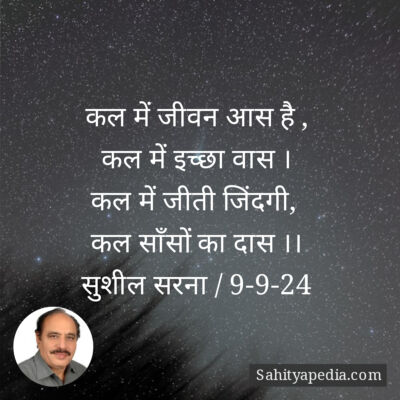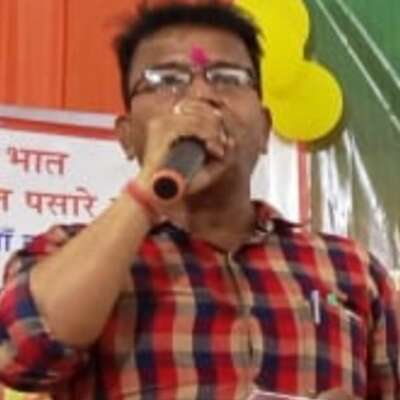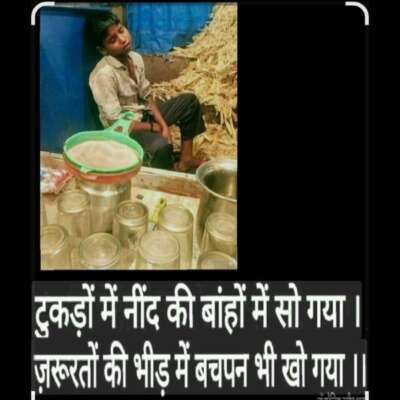Shradh Karma
Ancestors’ funeral
Shradh Karma?
———————-
“Diyat yat,
Tat Shraddham “Shraadh Karma”
That is, that action which is done with reverence and faith for the fulfillment of ancestors is called “Shraadh Karma”.
Every year fifteen days of the Krishna Paksha of the month of Ashwin are kept for the Shraddha rituals of Pitru Paksha. Another name of this Shraddha Paksha is also Mahalaya Paksha. On all these days, people offer water to their ancestors and pray for their salvation and peace and perform Shradh on their death anniversary i.e. death anniversary (the date on which they leave their last breath).
Home, Pind Daan and Tarpan (water-food) etc. come in Shradh. It is said by Maharishi Parashar that “The action that is performed by means of Til, Yava, Kush and Mantras in the country, time and vessel with reverence is the same Shradh.”
When the Sun enters the Virgo sign, the ancestors come down from the afterlife to stay on the earth for some time with their sons and grandsons.
It is believed in the Puranas that Yamraj frees all the living beings for some time every year during Shradh Paksha. So that they can go to their relatives and take tarpan. In Hindu culture, three ancestors, father, grandfather and great-grandfather are considered as equal to three deities. Father is considered equal to Vasu. Rudra Devta is considered as grandfather and Aditya Devta is considered as great-grandfather. These are considered representatives of all other ancestors at the time of Shradh.
According to the scriptures, it is believed that the departed soul enters the body of the performer on the day of Shradh, it remains there at the time of Shradh and being satisfied with the rituals performed in a proper way, he can bless his descendants with family happiness and prosperity. Bless you. Every person should perform Shradh for three previous generations i.e. parents, pitamaha-pitamahi (grandparents), prapitamaha-prapitamahi (great-grandfather-great-grandmothers) as well as their matamah-matamahi (grandparents).
Apart from this, in the absence of Shradh, we are our Guru-Guru-Mama, Tau-Tai, Uncle-Aunt, Brother-Sister-in-Law, Mother-in-law, Mother-in-law, Mama-Mami, Sister-Brother, Daughter-son-in-law, Nephew-niece, Nephew-niece, Shraadh can be done for aunt-aunt, uncle-aunt, son-daughter-in-law, friend, disciple, stepmother and her parents etc.
Generally, only the son has the right to perform Shradh for his father and grandfathers, but in the absence of a son, the wife of the deceased and in the absence of a wife, the daughter’s son (Dhevata) can also perform the Shradh.
The adopted son also has the right to perform Shradh. In the case of no male in the lineage, the scriptures have given women the right to perform Shradh. According to the Garuda Purana, the one who does not have any in his family, he can perform his own Shradh in the state of being alive.
Some special things are taken care of in Shradh Karma, such as: – Those who have died on Chaturdashi Tithi, their Shradh is performed only on Trayodashi or Amavasya of Pitru Paksha. Persons who have died prematurely (accident, snakebite, murder, suicide etc.), their Shradh is performed only on Chaturdashi Tithi. Shradh of married women is performed only on Navami. Navami Tithi is also good for Mother’s Shradh. The Shradh of Sanyasi Pitrugans is done only on Dwadashi. Shradh of a person who dies on Poornima is performed only on Bhadrapada Shukla Purnima or Ashwin Krishna Amavasya. Nana-Nani’s Shradh is performed only on Ashwin Shukla Pratipada.
A maximum of three brahmins are considered sufficient for performing Shradh. When the dishes made for Shradh are ready, after serving all the dishes at five places in a plate, taking water, Akshat, flowers, sandalwood, sesame in hand, one should make a resolution for Pancha Bali (Go, Dog, Kak, Dev, Pipilika). The food taken out for the crow’s sake should be given to the crow, dog’s food to the dog and all other food to the cow. Thereafter, Brahmins should be fed food. After giving Brahmin food, clothes, tambul (bead of betel) and dakshina etc., he should touch his feet by doing tilak.
After the departure of the brahmins, one should eat food himself along with the family. For Shradh, only a Brahmin who is decent, with excellent qualities, who is knowledgeable in the scriptures and who has been known for three generations, should be selected. Some grains and food items which are not used in Shradh are lentils, kidney beans, gram, kapittha, linseed, tisi, flax, stale food and salt made from sea water.
Milk of deer, camel, sheep and a hoofed animal is also prohibited but ghee of buffalo is not prohibited. In Shradh, milk, curd and ghee are considered to be particularly gratifying for the ancestors. Shradh is never performed in someone else’s house, in another’s land. Shraadh can be performed on land which is not owned by anyone, which is public.
why should
——————— When the resolution made with sincere mind, faith, reverence is fulfilled, the ancestors get inner peace. The family members who do not perform Shradh for their dead, their loved ones keep wandering for a long time. Through this karma, the soul gets the right position and it escapes from distraction and becomes free.
According to the Puranas, the vagina of the ancestors and the deities is such that they listen to distant things, receive worship and food from afar, and are satisfied even with distant praise. Apart from this, they know everything past, future and present and reach everywhere. The five tanmatras, the mind, the intellect, the ego and the nature – their body made up of these nine elements has this capability.
























